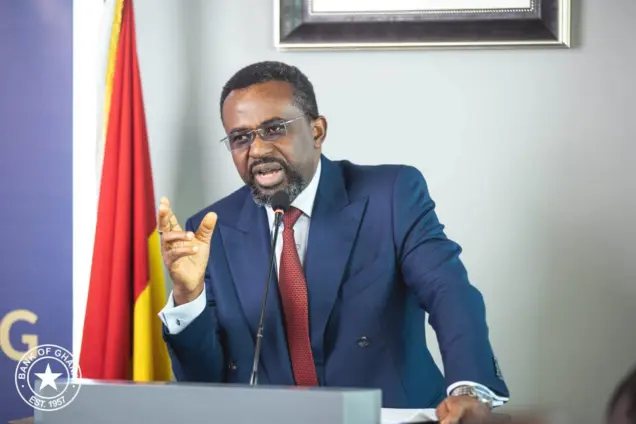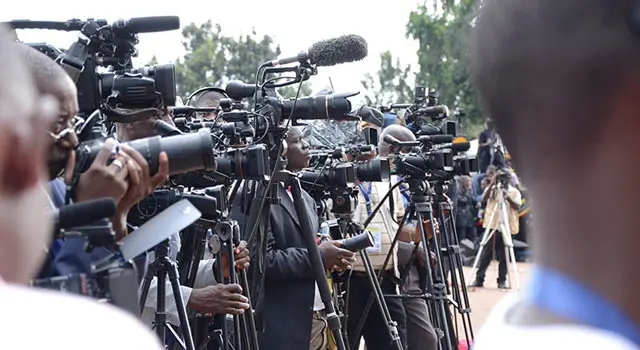Darkness descends frequently in Ghana, not just metaphorically but literally, as power outages plague homes and businesses. The erratic electricity supply casts a long shadow over the nation’s economic stability. Economist Prof. Godfred Bokpin, speaking recently on Newsfile, highlighted the urgent need for energy reforms to address these persistent challenges. His analysis points to deep-seated issues within the energy sector that, if left unaddressed, could further destabilize Ghana’s economic future.
Prof. Bokpin, a respected voice in Ghanaian economics, brings a wealth of knowledge to the debate. This article delves into his assessment of the energy sector’s woes, exploring his proposed solutions centered on structural reforms and increased private sector participation, and examining the potential for these changes to revitalize Ghana’s economic prospects. The critical keywords are: energy reforms, economic stability, Ghana.
Key Challenges in Ghana’s Energy Sector
Prof. Bokpin identifies several critical challenges undermining Ghana’s energy sector, creating a ripple effect throughout the economy. These challenges range from unsustainable distribution practices to financial mismanagement and pricing inconsistencies.
Unsustainable Electricity Distribution
One of the most glaring issues is the significant collection losses in electricity distribution. Approximately 15% of generated electricity is lost due to technical issues and non-payment. These losses are far above the global average, placing immense strain on the already burdened energy system. Prof. Bokpin emphasized this point on Newsfile, noting that such high losses are simply unsustainable.
Non-Payment of Electricity Bills by Government Entities
Adding to the woes, ministries, departments, and agencies often fail to pay their electricity bills, further crippling the energy sector’s financial health. As Prof. Bokpin stated on JoyNews on May 17, “You cannot pass on all those losses to the ultimate consumer.” This cycle of non-payment exacerbates the existing financial difficulties, making it harder for energy providers to maintain and upgrade their infrastructure.
Tariff Gaps and Pricing Formula Issues
Furthermore, existing tariff gaps and problems within the pricing formula contribute to the sector’s instability. These gaps create a discrepancy between the cost of producing electricity and the price consumers pay, leading to financial shortfalls that hinder investment and growth within the energy sector.
Prof. Bokpin’s Proposed Solutions: Private Sector Participation
To address these systemic issues, Prof. Bokpin advocates for increased private sector participation, particularly in the Electricity Company of Ghana’s (ECG) downstream distribution. He believes that bringing in private sector expertise and capital can inject much-needed efficiency and financial stability into the sector.
Private Sector Involvement in Electricity Distribution
Prof. Bokpin has been a vocal proponent of private sector involvement in ECG’s downstream distribution. As he stated, “We should support government in private sector participation in downstream distribution.” He clarified that this does not entail a complete sell-off of ECG. Rather, it’s about leveraging the private sector’s management skills, technological advancements, and financial resources to improve the company’s performance.
Maintaining Government Ownership while Enhancing Efficiency
Under this proposed model, the government would retain sole ownership of ECG, ensuring that the nation maintains control over its critical energy infrastructure. However, the day-to-day management and operation of the distribution network would be entrusted to private sector entities with proven track records in efficiency and revenue collection.
Benefits of Private Sector Participation
The potential benefits of this approach are numerous. Private sector involvement could lead to a significant reduction in technical and commercial losses, improved revenue collection, enhanced service delivery to consumers, and the attraction of much-needed investment for infrastructure upgrades. These improvements would collectively contribute to a more stable and sustainable energy sector, fostering economic development.
Challenges and the Path Forward
Implementing such reforms is not without its challenges. Potential obstacles include resistance from within ECG, the complex political landscape, and the need for widespread public support. Overcoming these hurdles will require a concerted effort from all stakeholders.
Potential Obstacles to Reform
Internal resistance to change is a common challenge in any reform process. Some ECG staff may fear job losses or changes to their working conditions. Navigating the complex political landscape and addressing potential opposition from various interest groups will also be crucial. Public support is essential to overcome these challenges, and that requires clear communication about the benefits of the reforms.
The Role of Citizens and the IMF Program
Ultimately, the success of these energy sector reforms hinges on the support of Ghanaian citizens. Power outages affect everyone, regardless of their political affiliation or socioeconomic status. It’s important to note that these reforms are part of a broader IMF-supported program aimed at restructuring Ghana’s energy sector and achieving long-term economic sustainability. These energy sector reform efforts contribute significantly to economic development across Ghana.
Ghana’s energy sector faces significant challenges, including unsustainable distribution practices, non-payment of bills, and tariff inconsistencies. Prof. Bokpin’s analysis underscores the urgent need for structural reforms and increased private sector participation to address these issues. By embracing these reforms, Ghana can pave the way for a more stable and sustainable energy sector, which will ultimately benefit all Ghanaians and contribute to long-term economic stability. It’s vital for everyone to stay informed and actively support initiatives that strive to improve Ghana’s energy sector.
Image Source: MYJOYONLINE




















